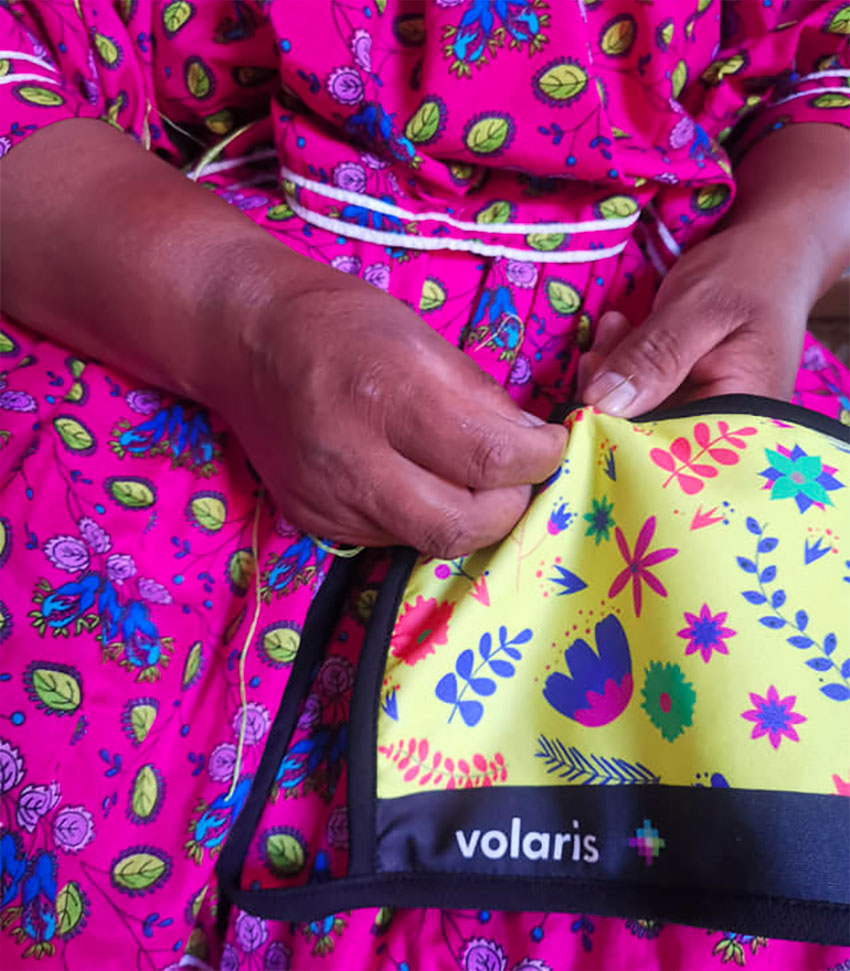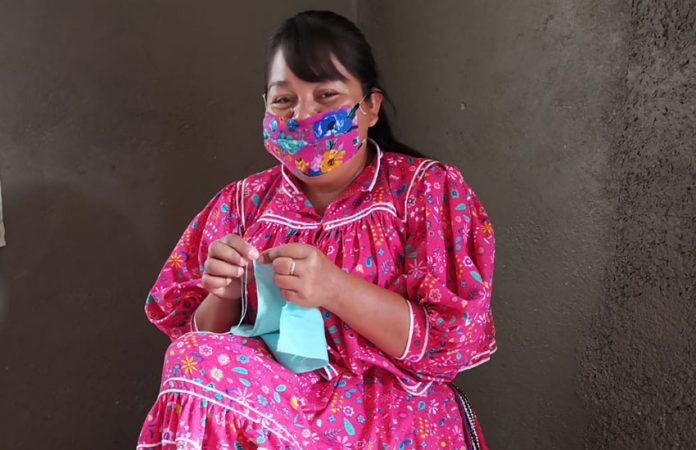The Mexican budget airline Volaris plans to provide passengers with masks created by indigenous women from the mountains of Chihuahua.
The colorful masks, made from a fabric that is 65% polyester and 35% cotton and meets health standards, are hand-sewn by women from Sínibi Jipé, a small group of Rarámuri artisans who have shifted from producing clothing to making masks due to the coronavirus pandemic.
Each mask distributed to passengers comes with the name and photo of the woman who sewed it.
The Rarámuri, or Tarahumara as they are also known, are native to the mountains and canyons of Chihuahua’s Sierra Madre Occidental. Many still practice a nomadic lifestyle, and they are well known for their impressive ability in long-distance running, including marathons and ultramarathons.
Their culture is explored in the popular short documentary Lorena: La de Pies Ligeros (“Lorena: Light-footed Woman) through the story of Lorena Ramírez who won the Guachochi, Chihuahua, ultramarathon in 2017 running 100 kilometers clad in sandals and her traditional dress.

Luisa Fernanda Martínez, director of Sínibi Jipé, which means “Always Today” in Rarámuri, hopes that by making the masks for Volaris Rarámuri female artisans will begin to gain the kind of fame that the tribe’s runners have achieved.
They have already garnered numerous media reports including a mention in the pages of Vogue México.
The number of employees has increased from just four to 15 as they work to meet demand, but Sínibi Jipé is not only concerned about growing the business, it’s about personal growth as well.
“This business is one that seeks to get the best out of each person,” says Martínez, which she says is one of the reasons Volaris chose them to create the masks.
“Our main objective is the integral development of the artisans, and we have used clothing as a tool to achieve many purposes, such as raising their self-esteem and preserving their culture.”
Volaris is making another change to honor the seamstresses and their culture by translating health safety information cards into Rarámuri, marking the first time a national airline has translated information into an indigenous language.
In addition, Volaris has pledged that it will fly the women of Sínibi Jipé to Mexico City on August 30 so they can watch the Mexico City Marathon.
“This approach with Sinibí Jípe is very significant for Volaris because it allows us to offer our clients a fundamental piece of protection in the context of the health contingency, and also collaborate with the development of a community that faces exceptional challenges in our country,” said Holger Blankenstein, executive vice president of Volaris.
Source: Milenio (sp), Vogue (sp), El Heraldo de Chihuahua (sp)
